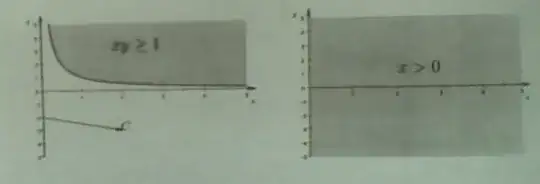I am looking for closed subsets $A,B\subset\mathbb{R}^2$ so that $A+B$ is not closed.
I define
$A+B=\{a+b:a\in A,b\in B\}$
I thought of this example, but it is only in $\mathbb{R}$. Take:
$A=\{\frac{1}{n}:n\in\mathbb{Z^+}\}\cup\{0\}$ and $B=\mathbb{Z}$
both of these are closed (is this correct?). But their sum $A+B=\mathbb{Q}$ which is not closed.
